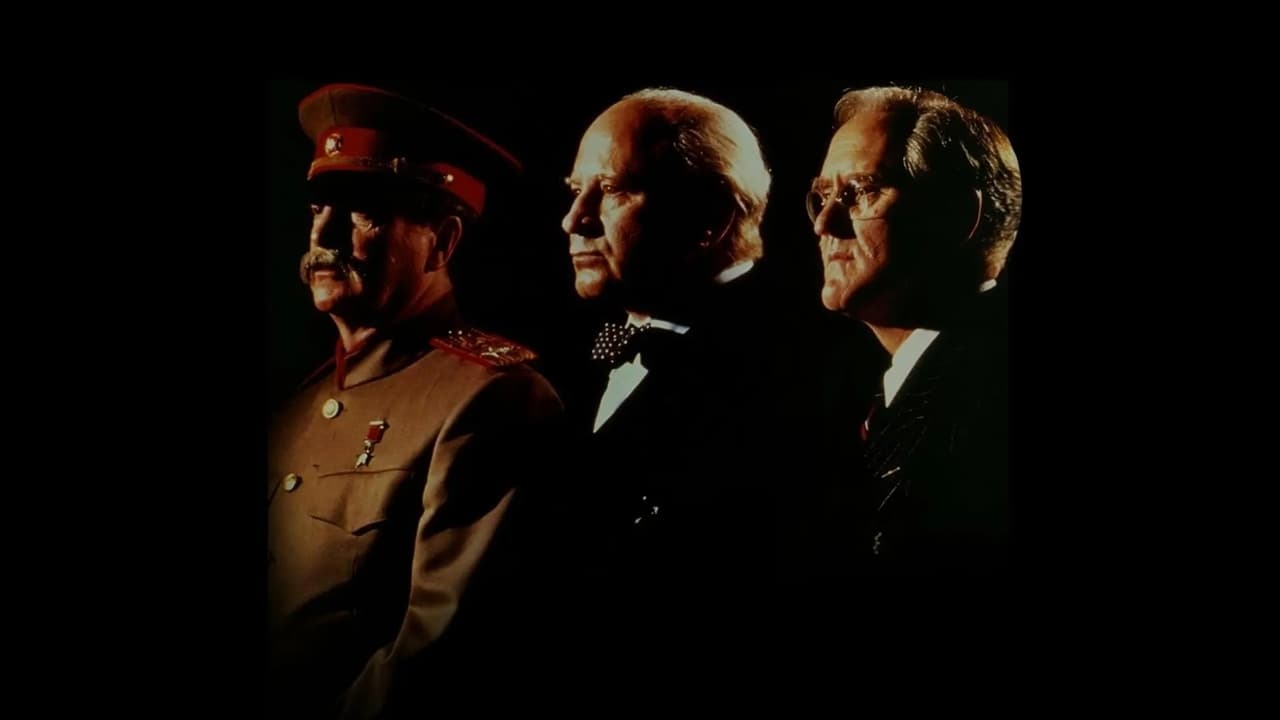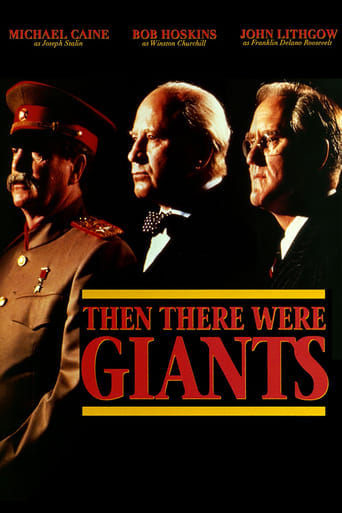SmugKitZine
Tied for the best movie I have ever seen
Intcatinfo
A Masterpiece!
Humbersi
The first must-see film of the year.
BelSports
This is a coming of age storyline that you've seen in one form or another for decades. It takes a truly unique voice to make yet another one worth watching.
HotToastyRag
This three-hour miniseries is a bit of an acquired taste, so if I warn you of what you're getting into, you'll be in a better position to appreciate it. First of all, it's extremely wordy. David W. Rintels's script is well-researched, but it feels like he's written a play rather than a teleplay. With exception to the real-life war footage that's shown—and that could be projected onto a backdrop onstage—the entire movie feels like a taped live theatrical performance. Secondly, it was written in a very unusual style: the three lead characters are in completely separate environments, but they have conversations with each other in the same scene. For the majority of the film, the screen is split in halves or thirds, showing the characters speaking in a dialogue as if they're in the same room, rather than separate countries. Sometimes it feels a little jarring or strange, but if you imagine you're watching a play and the stage is separated into thirds and lit up in accordance to who's talking, it's much more entertaining. And hats off to the editor, John A. Martinelli, who no doubt had his hands full! The film starts in 1941, months before Pearl Harbor, and follows the involvements and interactions of Winston Churchill, Franklin Delano Roosevelt, and Joseph Stalin through the Tehran Conference in 1943. John Lithgow plays FDR, and while he looks very much like the president, he still sounds like himself. Bob Hoskins, on the other hand, is just the opposite. He doesn't look a thing like Churchill, but if you close your eyes, he sounds exactly like him! With Michael Caine as Joseph Stalin, you get the best of both worlds; not only is his appearance picture-perfect, but he puts on a surprisingly good Russian accent. The performances are very fun to watch, so even if you can't make it through the entire three-hour running time, at least watch a half hour of it to appreciate the acting.
jvdesuit1
This everlasting subject of the relations between the three major leaders in charge of defeating the Nazis and settling a lasting peace in the world benefits here of an original staging.All along the movie the director gives us the impression that a dialog was set between the three leaders, while in reality we know it was a dialog between deaf guys.Churchill knew from the beginning that Stalin was a liar, deceitful rascal, FDR was already too ill to oppose the cynical Stalin and had to sustain the eternal isolationism of the American people (we must really thank Japan for Pearl Harbor because otherwise Europe would be one of the Nazi provinces), Stalin was in Russia murdering his opponents, fighting against Germany and would have probably concluded a separate peace treaty with the Nazis if Churchill and FDR had not fallen into the trap he presented them at Yalta.As far as the casting of the three head of states, the poorest choice was Bob Hoskins impersonating Churchill. He did not have the looks, he did not master the speech. Michael Caine makes a splendid impersonation of Stalin although his face is still far from the dictator's one. John Lithgow is a very credible FDR. As for Harry Hopkins there is no resemblance but this is not important in itself. Molotov aka Jan Tríska was not a bad choice.There are of course errors in the staging. Stalin used always an interpreter. I'm not even sure he could speak English.As for the historical facts they are accurate as you can't change such important events which shaped the world history and the fate of millions of people.The merit of the movie is it emphasizes the blindness of the USA President as regards USSR and the sinister cynicism with which poor Poland and many other eastern countries were treated and still are.Nothing has changed since, the USA are always the poorest international diplomats abroad because of their stubbornness to impose their language to the rest of the world forgetting that to understand a foreign country's culture and mentality it is mandatory to speak its language. We've seen the result in Irak, in Vietnam, in Egypt, in Lybia and in Afghanistan now. Force is not the sole solution, it generates humiliation and anger. That was the case with Germany which lead to WWII and the Nazis.Will the lesson be understood one day? I doubt, splendid isolationism which was before the attribute of England, is now anchored in the USA's people mentality whatever their leaders' declarations may be....
Mark Hone
I'm afraid that I couldn't get past the miscasting of Bob ('Gor Blimey, Guvnor') Hoskins as Churchill and Michael Caine as Stalin. As soon as they appeared the whole credibility of the movie went out of the window for me, I'm afraid. It's one thing to have star names but when their presence distracts attention from the dramatic production itself, you are in trouble. Bob Hoskins has many qualities, but giving a convincing portrayal of Churchill isn't one of them. He looks woeful beside Albert Finney's performance in the HBO/BBC 'The Gathering Storm' or Simon Russell Beale (albeit too young) in the BBC mini-series 'Dunkirk'. Anyone interested in the events portrayed in 'When Lions Roared' should see the superb BBC/US co-production 'World War II: Behind Closed Doors' (2008)instead. This features archive footage, interviews with participants and convincing dramatized reconstructions to tell the story.
George Parker
Dubbed "Then There Were Giants" on cable, this made-for-tv two part film spends three hours presenting a theatrical digest of the communication which ostensibly took place between FDR, Churchill, and Stalin during WWII. Against a backdrop of file footage and the various sets required for conferences (Teheran, Yalta, etc.), the trio of heads-of-state build complex relationships of diplomacy as they map out plans for D-Day, the UN, and more. Lithgow, Hoskins, and Caine turn in excellent performances in this sterling characterization of the men who occasioned some of the 20th centuries most momentous events. Great stuff for WWII history buffs.

